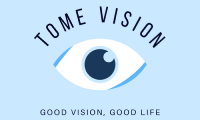The Impact of Pollution on Eye Health
Introduction:
Pollution is a growing concern worldwide, affecting not only the air we breathe but also our overall health. While the detrimental effects of pollution on respiratory and cardiovascular health are widely known, its impact on eye health is often overlooked. This article aims to shed light on the harmful effects of pollution on our eyes and provide insights into how we can protect ourselves.
I. The Link Between Pollution and Eye Problems
Exposure to pollutants in the environment can have significant consequences for our eyes. Here are some common eye problems associated with pollution:
1. Dry Eyes: Airborne pollutants such as smoke, dust, and chemical particles can lead to dry eyes. These irritants cause excessive tear evaporation and disrupt the natural lubrication of the eyes, resulting in discomfort, redness, and a gritty sensation.
2. Allergic Conjunctivitis: With pollution comes an increased prevalence of airborne allergens such as pollen, mold spores, and pet dander. Exposure to these allergens can trigger an allergic reaction in the eyes, leading to redness, itching, excessive tearing, and swelling.
3. Eye Infections: Dust and pollutants in the air can also introduce harmful bacteria and other microorganisms, increasing the risk of eye infections. These infections can manifest as conjunctivitis, styes, or even more severe conditions like corneal ulcers if left untreated.
4. Age-Related Macular Degeneration (AMD): Recent studies have suggested a potential link between pollution and the development or progression of age-related macular degeneration. Air pollution, specifically fine particulate matter (PM2.5), has been shown to accumulate in the retina, potentially causing oxidative stress and retinal damage.
II. Protecting Your Eyes from Pollution
While it may be challenging to completely avoid pollution, there are several measures you can take to safeguard your eyes:
1. Wear Protective Eyewear: When venturing outdoors in polluted environments, consider wearing wraparound sunglasses or goggles to shield your eyes from harmful airborne particles and allergens. This can significantly reduce the risk of eye irritation and infections.
2. Use Lubricating Eye Drops: For individuals experiencing dry eyes due to pollution, artificial tears or lubricating eye drops can provide temporary relief by restoring moisture to the eyes. Consult an eye care specialist for recommendations on suitable eye drops for your condition.
3. Maintain Good Hygiene: Practicing good hygiene is crucial in preventing eye infections. Wash your hands regularly, especially before touching your eyes, to reduce the transfer of bacteria and viruses. Additionally, avoid rubbing your eyes, as this can introduce pollutants directly into the eyes and increase the risk of infections.
4. Keep Indoor Air Clean: While pollution is primarily associated with outdoor environments, indoor air quality can also impact eye health. Use air purifiers or filters to reduce indoor pollutants, particularly in areas prone to contamination, such as kitchens or workshops. Regularly clean and vacuum your living spaces to minimize dust accumulation.
Conclusion:
As pollution continues to pose a threat to our health, it is essential to recognize the impact it has on our eyes. By understanding the link between pollution and eye problems, implementing preventive measures, and seeking timely medical attention, we can protect our eyes and maintain good ocular health in an increasingly polluted world. Remember, taking care of your eyes today ensures healthier eyes for tomorrow.
